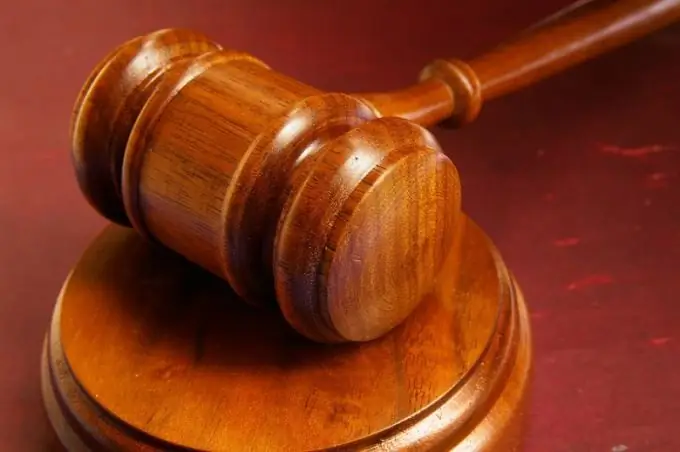The IOU is equated to a loan agreement and is subject to strict execution (Article No. 808 of the Civil Code of the Russian Federation). If there is nothing to return the borrowed amount, or the receipt is written, but the funds for it have not been transferred, all controversial issues are resolved exclusively in court.

It is necessary
- - application to the court;
- - IOU and photocopy;
- - a package of evidence.
Instructions
Step 1
The limitation period for the IOU is three years. During this period, the borrower or lender has the right to file a statement of claim with an arbitration court or a court of general jurisdiction with a statement of claim, on which legal proceedings will begin.
Step 2
If you borrowed funds, they were transferred to you, you must strictly comply with all the conditions specified in the receipt. If you are unable to repay the debt on time, contact your lender and try to negotiate an extension of the loan. Most often, negotiations lead to a positive result, and there is no need to go to court.
Step 3
If you could not come to a mutual agreement and you need to return the debt immediately, go to court with a statement of claim. Attach the original and photocopies of the debt receipt to the application, a package of documentary evidence that you cannot repay the debt. This can be a certificate from the employment service, where you are registered due to the loss of a job, a certificate confirming a long illness that caused your lack of money, etc.
Step 4
The court will consider your application, the submitted package of documents and issue a resolution on the basis of which you can legally repay the debt on receipt in a longer period of time.
Step 5
Debt restructuring can be issued for 5 years. But if you cannot return the borrowed funds during this period, your creditor has the right to demand to collect the debt forcibly. Your property will be described by the bailiffs, sold and the proceeds will be deposited to pay off the debt.
Step 6
If you wrote a receipt and handed it over to the creditor, but did not receive the funds, apply to the court. Use the testimony of witnesses as evidence of your lack of money on the receipt.
Step 7
It often happens that there were no witnesses during the transfer of the receipt. In this case, get permission to record the conversation with the lender, which he will not know about. The Russian legislation allows you to use any kind of recording devices on your own only in exceptional cases. Such records are accepted for judicial review only after the identification procedure.
Step 8
A record of the conversation that you have not received the funds will be sufficient confirmation of this.






